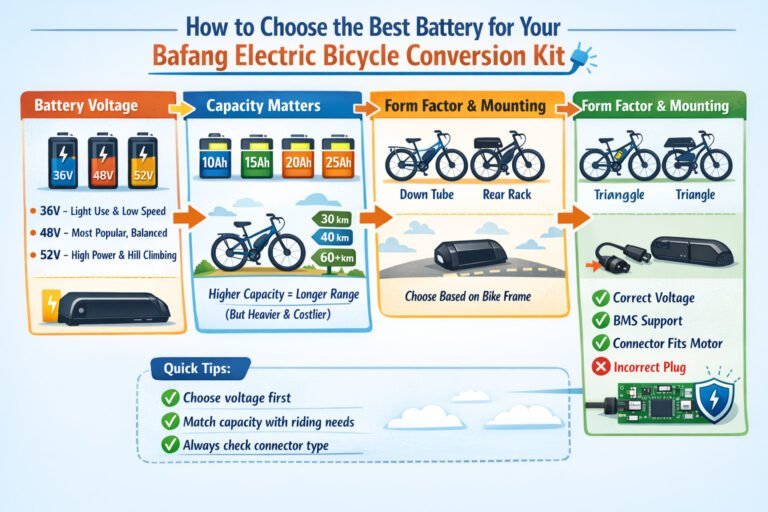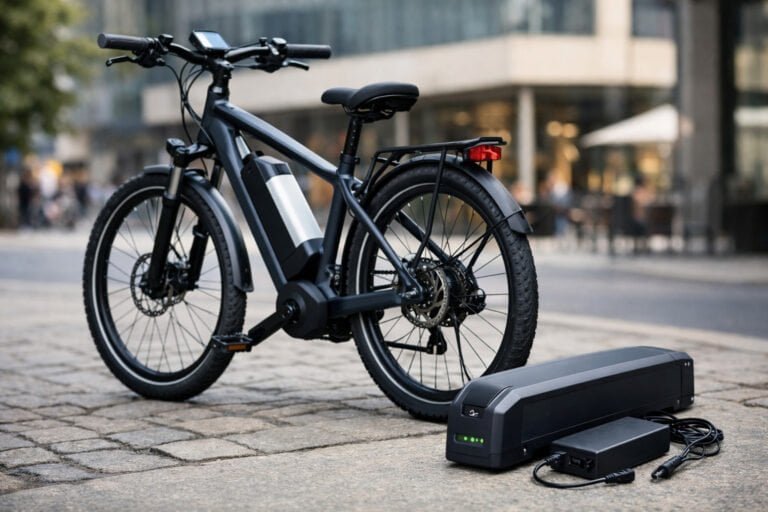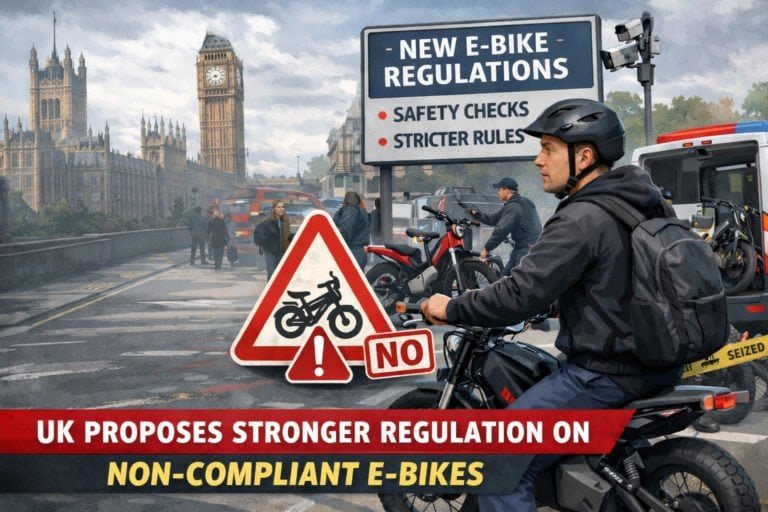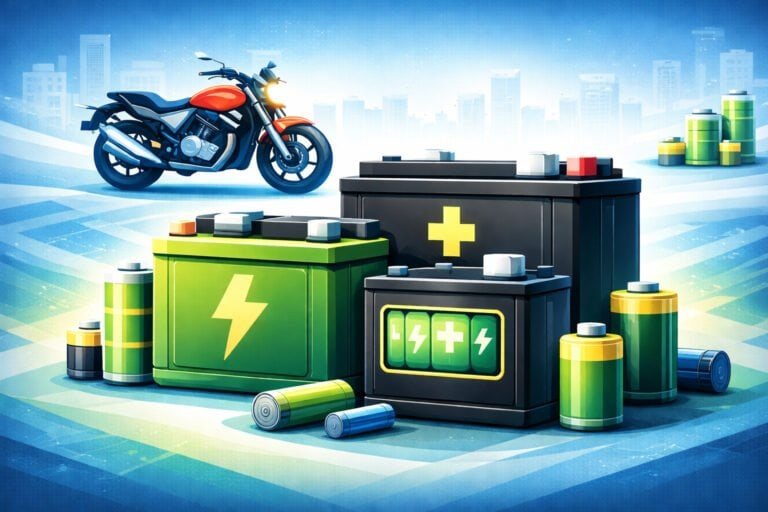As electric bikes (E-Bikes) and scooters become increasingly popular, their battery – the heart of the system – directly impacts your riding experience. With countless battery brands and complex specs flooding the market, how do you choose the right one? This guide breaks down the four key factors: range, safety, compatibility, and lifespan to help you select the perfect battery.
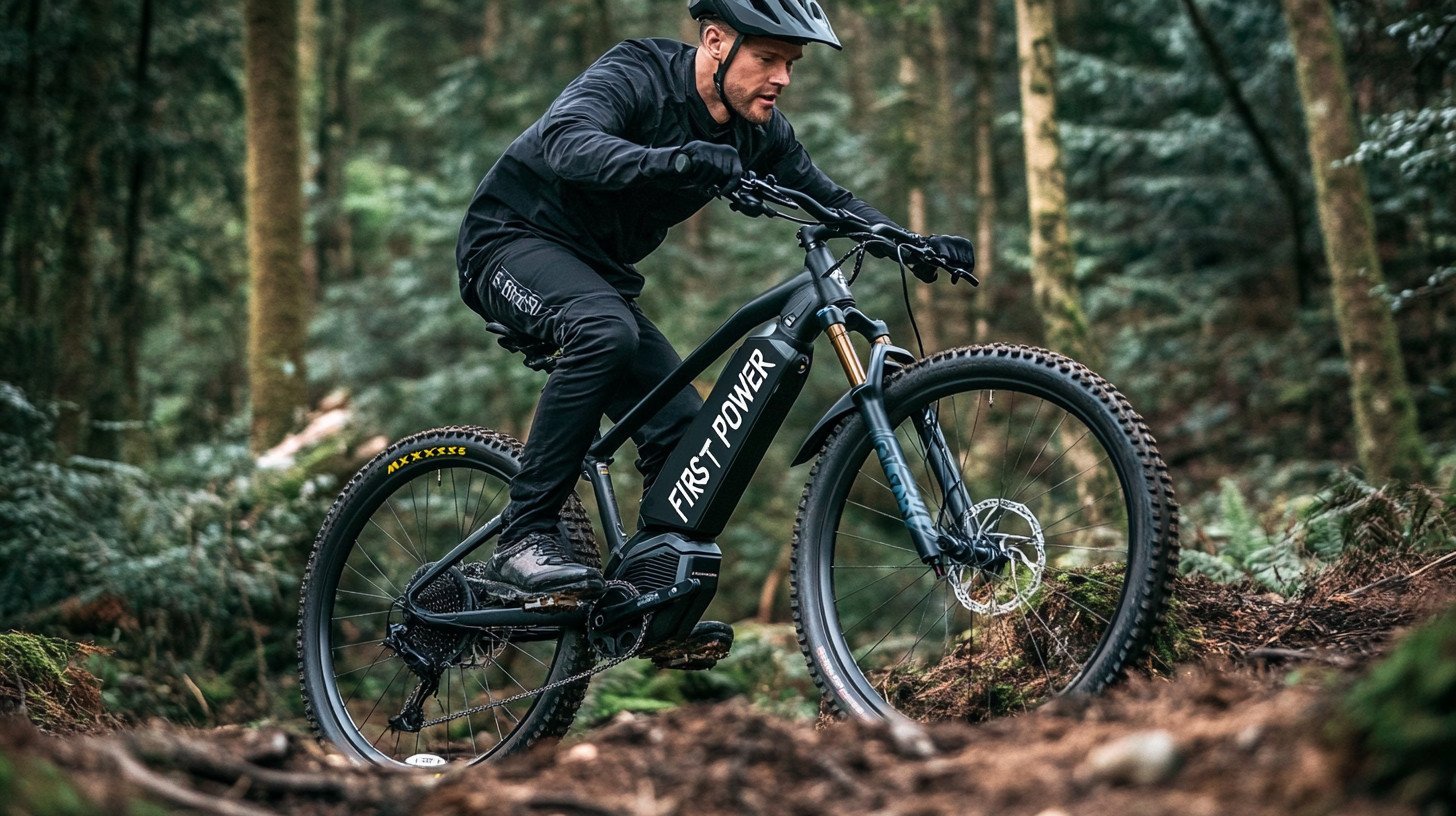
1. Range: Capacity ≠ Actual Mileage – Voltage & Efficiency Matter More
Capacity (Ah): Determines theoretical range but real-world performance depends on riding style, terrain and motor power.
Example: A 48V 20Ah battery may deliver 50-62 miles (80-100 km) on flat roads, but less on hills or at high speeds.
Voltage (V):
Higher voltage (48V/52V) = more power (ideal for hills/cargo)
36V = lighter weight (best for short commutes)
Pro Tip: Match voltage to your motor and calculate true range using: Wh (Watt-hours) = V × Ah
2. Safety First: Smart BMS & Fireproof Design
Cheap batteries risk overheating, fires or even explosions. Look for:
✔ Battery Management System (BMS): Prevents overcharge/discharge, extends lifespan
✔ Cell Chemistry:
NMC (high energy density)
LiFePO4 (longer life, heat-resistant)
✔ IP65+ Rating: Water/dust resistance (essential for all-weather riding)

3. Compatibility & Fit: Size & Connectors
Ensure battery fits your frame (no modifications needed)
Check connector types (XT60, Anderson etc.) match your controller
4. Lifespan & Value: Cycles & Warranty
✔ 800-1,000 charge cycles (capacity stays above 80%)
✔ 2+ year warranty from reputable brands (Bosch, Panasonic, FirstPower etc.) – avoid no-name batteries
5. Avoid These 2 Common Mistakes
❌ Myth 1: “Bigger capacity is always better”
Truth: Mismatched power can damage your motor (consult a technician)
❌ Myth 2: “Cheaper batteries save money”
Truth: Many use recycled cells –
6. Pro Verification: 3 Simple Steps
1️⃣ Check Certifications: CE/UL/IEC62133 (all FirstPower models comply)
2️⃣ Review Test Reports: Third-party verified (like TÜV Rheinland reports)
3️⃣ Ask for References: Proven use by major brands
Why First Power(Yi zhan battery) Stands Out
✔ 12+ Years Expertise: 2 million+ batteries sold, zero major safety incidents
✔ Modular Systems: Custom 36V-72V solutions for any bike
✔ Warranty
Learn More About Battery Tech & Reviews
Follow us on social media!

